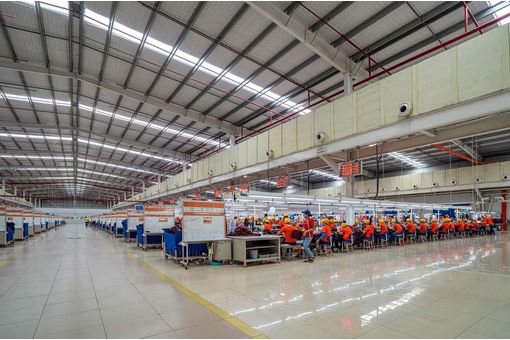Interviews
IMF predicts Asian growth to remain strong
04 May '16
5 min read
slowdown across emerging markets, weak global trade, persistently low commodity prices, and increasingly volatile global financial markets. These risks compound domestic vulnerabilities, such as high debt incurred in recent years. In the short term, China's transition to a new growth model will disrupt its regional partners, especially those heavily exposed to the region's biggest economy.
Geopolitical tensions and domestic policy uncertainty add risks of potential trade disruptions or lower domestic demand. Natural disasters, too, can reverse economic gains, particularly in lower-income countries and small states (including many Pacific islands). Small states also face the challenge of reduced financial services by global banks (or “de-risking”), which could hold back financial inclusion and growth.
The report also recognizes, however, that the outcome could turn out more positive than forecast. Low commodity prices could be a bigger boost to the region's economies than expected; and regional and multilateral trade agreements, such as the Trans-Pacific Partnership, could benefit Asia-Pacific even before they are ratified.
While Asian economies have strong buffers and are relatively well positioned to face the challenges ahead, countries will need to adopt economic policies that shore up growth and reduce their exposure to global and regional risks.
On the fiscal front, gradual consolidation is generally desirable to rebuild policy space, but countries can adjust the composition of spending to allow for growth-friendly and much-needed infrastructure and social spending in many economies, the report said.
Flexible exchange rates should continue to be the first line of defence against external shocks. At the same time, foreign-exchange intervention and capital-flow measures could be deployed in special circumstances, such as disorderly market conditions. The report also notes that region has extensively used macroprudential policies to deal with financial volatility and risks and should continue to do so as a complement to monetary and fiscal policies.
The report also emphasizes that structural reforms are needed to help bolster potential growth and facilitate rebalancing. The region's past reforms have been highly effective, fostering economic diversification and facilitating Asia's entry into global markets, it noted. (SH)
Geopolitical tensions and domestic policy uncertainty add risks of potential trade disruptions or lower domestic demand. Natural disasters, too, can reverse economic gains, particularly in lower-income countries and small states (including many Pacific islands). Small states also face the challenge of reduced financial services by global banks (or “de-risking”), which could hold back financial inclusion and growth.
The report also recognizes, however, that the outcome could turn out more positive than forecast. Low commodity prices could be a bigger boost to the region's economies than expected; and regional and multilateral trade agreements, such as the Trans-Pacific Partnership, could benefit Asia-Pacific even before they are ratified.
While Asian economies have strong buffers and are relatively well positioned to face the challenges ahead, countries will need to adopt economic policies that shore up growth and reduce their exposure to global and regional risks.
On the fiscal front, gradual consolidation is generally desirable to rebuild policy space, but countries can adjust the composition of spending to allow for growth-friendly and much-needed infrastructure and social spending in many economies, the report said.
Flexible exchange rates should continue to be the first line of defence against external shocks. At the same time, foreign-exchange intervention and capital-flow measures could be deployed in special circumstances, such as disorderly market conditions. The report also notes that region has extensively used macroprudential policies to deal with financial volatility and risks and should continue to do so as a complement to monetary and fiscal policies.
The report also emphasizes that structural reforms are needed to help bolster potential growth and facilitate rebalancing. The region's past reforms have been highly effective, fostering economic diversification and facilitating Asia's entry into global markets, it noted. (SH)
Fibre2Fashion News Desk – India
Popular News
Leave your Comments
Editor’s Pick
Apparel/Garments
Apr 28, 2024
2 min read
Retail
Apr 28, 2024
2 min read
Apparel/Garments
Apr 28, 2024
2 min read
J Rajaraman
Canadian Solar Energy Private Limited
































-Ltd..jpg?tr=w-120,h-60,c-at_max,cm-pad_resize,bg-ffffff)





.jpg?tr=w-120,h-60,c-at_max,cm-pad_resize,bg-ffffff)
.jpg?tr=w-120,h-60,c-at_max,cm-pad_resize,bg-ffffff)






